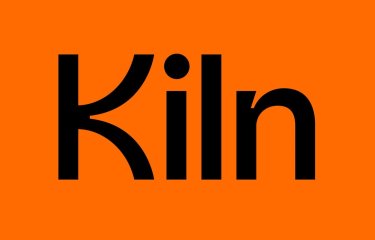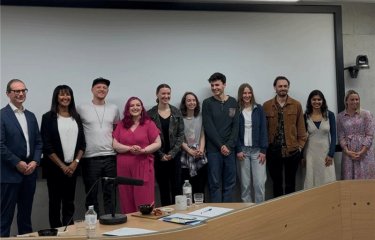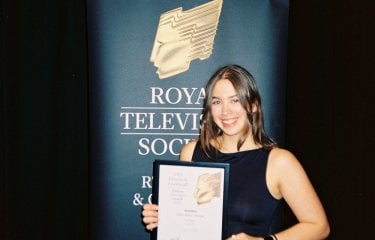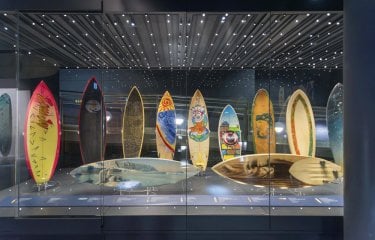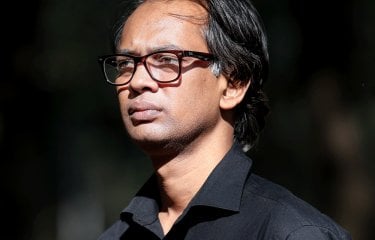An interview with Matt Osbond: Principal Technical Art Director at Xbox
20 March 2023
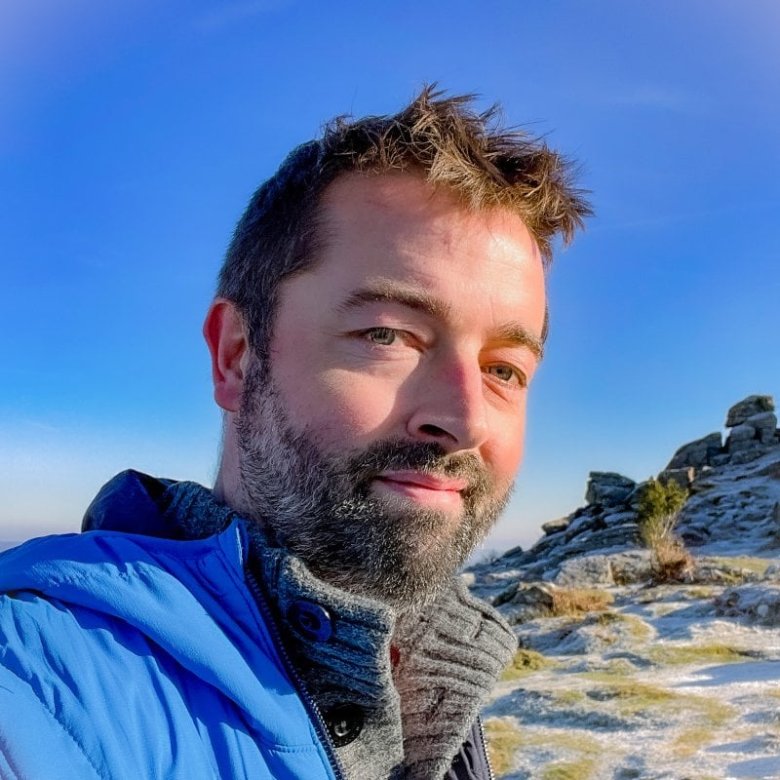
Matt Osbond is no stranger to legendary game franchises. Having worked as a Technical Artist on award-winning titles like Halo and Forza Horizon, he has been immersed in almost every stage of the games content pipeline.
Equally passionate about empowering the next generation of content creators, Matt has recently joined our MA Indie Game Development (Online) community as an online tutor. We chatted to him about his illustrious career, the challenges facing the games industry and what he thinks it takes to make it as an indie game developer.
What first piqued your interest in game art and game design?
It all started with an isometric game I played a long time ago called Little Big Adventure. It wasn’t fully 3D, but you had to render the angles for game play. I was only ten or eleven when it came out, but I remember thinking how cool it was that you could go anywhere and do anything in the game - that lit the spark for me.
I then started making things in 3D as a hobby, and when it came to looking for university courses, I had planned to go into engineering, but decided to pursue 3D design and so did my undergraduate degree in film and special effects. I wasn’t planning to go into games at that point, but after spending a summer working in Soho at a commercial advertising agency, I had no desire to continue working in that area. At that point, I had to think about what I could do with the skills I had acquired.
Having grown up in Devon, I preferred the countryside to the city, and games companies tend to be based in nice places – that was honestly my initial draw!
My first role, straight out of university, was at game development studio, Rare. I had finished an MSc in computer animation, and Rare were looking for a technical artist, which was quite an emerging area of work back in 2007. I had an artier background than some of the other people on the MSc, and so my showreel was visually a bit flashier, which helped!
Working on something you played as a kid, and having that be your world, is mind-blowing.
What skills do you think someone needs to be a successful indie game developer?
Self-motivation is the key; if you can’t manage or handle yourself, you will struggle to succeed.
On the Falmouth master’s, you spend a lot of time working on your own, or in small teams, so you need to be able to manage your time and your projects. It’s less about the technical and artistic requirements: you don’t need to have both skillsets to excel in indie games, but you do need to be on the ball with time management.
What is the best thing about working at Xbox?
I’ve been fortunate to work with lots of super talented people during my career so far, and that really rubs off on you. Especially with huge titles like Halo – that naturally attracts a lot of people who really love the game and want to work on it, because the first one came out when people my age were younger and were playing it after school.
Working on something you played as a kid, and having that be your world, is mind-blowing. It’s quite unique too, because not that many game franchises hang around for that long.
What project during your career are you most proud of, and why?
Forza Horizon is the thing that stands out. I was still relatively early in my career; I’d only been in the industry for about two and a half years. Playground (the game developers behind Forza Horizon) was a small company at the time, and I was one of the first people hired by the founders. We had to do the vertical slice for Xbox as proof of concept, which was my first time using 3D Studio Max, as well as a new engine, so it was a baptism of fire across the board!
When you’re in that scenario with a group of people, it’s like going into battle together; you bond a lot more because you’re going through something very intense. I look back at it now and think it was an incredible achievement to have come out of that process with a product like Forza Horizon. We were only a 60-strong team at peak, and we made that game in 15 months, and it looks amazing. If you consider what games take to make now – the time and people power – I am really proud of what we managed to achieve by working smart, making quick decisions and never leaving a meeting without action points.
There are a lot of cool emerging AI systems and I think the challenge is how we effectively integrate them into our ways of working.
How does indie game development compare to working for a large games company like Xbox?
When you’re an indie game developer or working in a small studio, you must wear a lot of hats. In a larger studio, you’re likely to have more of a specialism, but you’re perhaps more of a cog in a machine. People don't tend to change roles too frequently in big companies; if you’re good at one thing, it’s common to stay where you are and become an expert.
But I don’t think you should specialise too soon. It's important to try lots of different areas to decide what works for you: am I a problem-solver? a creative thinker? a people manager? You find that out over time. Understanding all the areas that go into game development is so valuable, too - you’ll work much better as a team if you have that understanding of what everyone else is doing. Game development is like a jigsaw puzzle, and if one person isn’t aligned in the right way, the puzzle will never be complete.
What do you think is the biggest challenge currently facing game designers and other professionals in the industry?
For indie game developers, marketing and exposure are two of the biggest current challenges. It is a saturated market, and so to stand out you need to be unique and on point with your social media activity – and that takes time.
If you don’t have a strategy in place, you’ll struggle to succeed. Games which have very little screen play, but have strong social media presence, are soaring. People love cute GIFs and I saw one recently for an indie game featuring a witch - in an Animal Crossing style of artwork - flying around on a broomstick; It’s now got a Kickstarter worth over a million dollars.
In the industry more broadly, the biggest challenge is finding a way for AI to coexist with artists and developers within workflows. We don’t want to replace people, but these AI systems are coming into play, and they should be used as a tool to empower not only individual contributors but also companies who otherwise wouldn’t have had the resources to deliver a project or make improvements to their work. I’m not just talking about artwork or ChatPGT either; there is voiceover tech, background music tech, animation blending. There are a lot of cool emerging AI systems and I think the challenge is how we effectively integrate them into our ways of working.
But making games is a lot of fun and we’re very lucky to be in an industry that is intrinsically about having fun. If you’re enjoying it, that enjoyment will seep through into what you make, and we will rise to these challenges.
